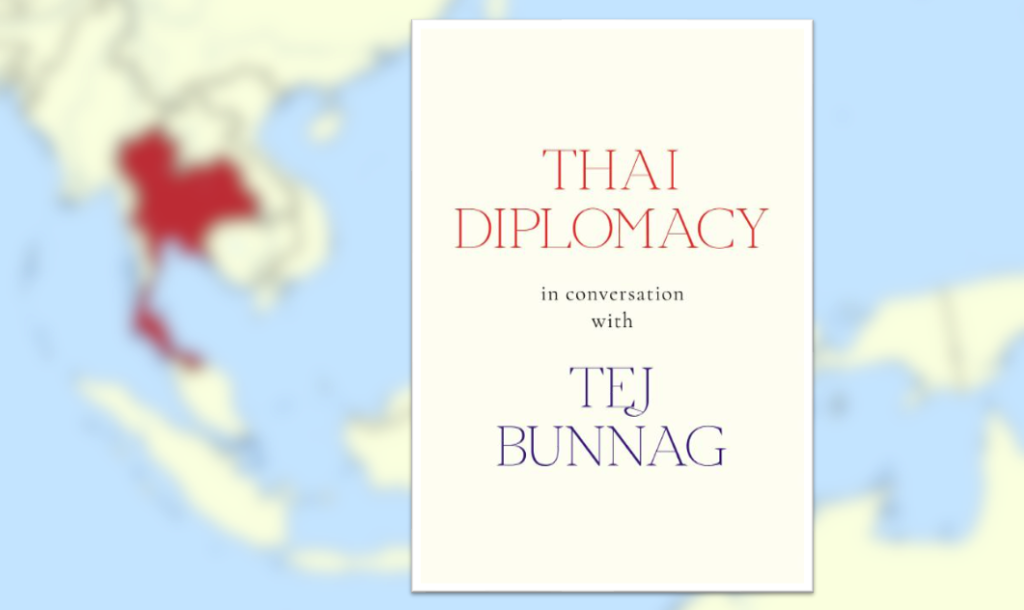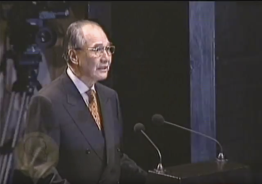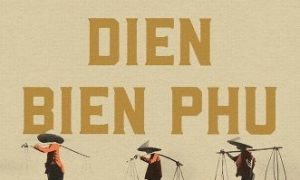Anuson Chinvanno, ed. Thai Diplomacy: In Conversation with Tej Bunnag. Bangkok: International Studies Center, Ministry of Foreign Affairs, 2021. 207pp.
The editor, Dr Anuson Chinvanno, interviewed Dr Tej Bunnag (b. 1943), one of Thailand’s most distinguished diplomats. He had been ambassador to China, France, the USA, and Geneva. After he retired as Permanent Secretary of the Ministry of Foreign Affairs (MFA), he moved to the Office of Principal Secretary of the late King Bhumibol Adulyadej. He is now Director-General of the Thai Red Cross, a landing pad for high-ranking officials after retirement. He still lectures to MFA entrants for whom Thai Diplomacy, with its many “lessons learnt,” is a handbook. The careers of the ablest seem never to end.
The conversations in English, awkward at first because they usually spoke Thai to each other, begin with Anuson tossing up questions, some predictable, some moderately challenging, to which Tej responds about Thailand’s place in the world from his experience and knowledge of the country’s history. The questions are not confrontational. If they had been so, “I would have had to be economical with the truth,” he admits with disarming candour. He concedes that an occasional problem with Thai diplomats is that they can be economical with the facts at the wrong time. The art and craft, not to say craftiness, of diplomacy is on display everywhere.
He recounts an early success for Siam on the international stage at the Congress of Versailles after World War I. One of only three invited Asian countries, Siam was recognised not as a global power but as “a power with limited interests” and given two seats rather than the three enjoyed by great powers. The Republic of China made a fuss over its two seats and walked out. The Siamese delegation grabbed a spare chair and squeezed in a third delegate, thus achieving results without making a fuss. “It was not a problem, we are small people!” he jests.
Thai diplomacy had another success in 1955 at a meeting in Bandung, which led to the Non-Aligned Movement and where Prince Wan Waithayakon (1891–1976), the urbane, unflappable, scholar-official and foreign minister from 1952 to 1957, was elected Rapporteur and Chair of the committee drafting the Bandung Declaration. Only a year before, Prince Wan had attended a meeting in Manila where Thailand signed the Manila Treaty that enabled SEATO (Southeast Asia Treaty Organisation), symbolic of the “Free World” and key strategy in America’s ambition to contain communism in Asia. (Tej is not in favour of containment as a policy.) Thailand was identified as belonging to the Western camp, but at Bandung it mixed with the non-aligned, and so appeared to be on both sides, the pleasing result of “deft footwork.”
As a power with limited interests, Thailand has had to look to its survival. It is too small to act alone, it does not have agency, Tej’s word for being “master of your own destiny.” Rivalry and competition among great powers are to be expected. The great powers of the19th century (Britain, France, Germany) and of the 20th century (the USA) had full agency over events and the military capacity to use force beyond their borders. Circumstances have limited Thailand’s choice of action, so its foreign policy must be flexible. Sometimes it has taken positions unpopular with powers that have agency. In 1933 Japan invaded Manchukuo. When the issue was raised in the League of Nations, Siam, pro-Japan in the decade before World War II, abstained from voting, as it did again in 1937. The Western powers were not happy.
Thailand’s foreign policy has steered it through imperialism, colonialism, communism and “whatever-ism that is blowing in the wind,” he says with pride, but Thailand did not emerge unscathed from the colonial period. In the decade before World War II policy concentrated on restoring the country’s complete fiscal and judicial sovereignty that treaties with the imperial powers had restricted. Britain and France had policed borders, and when the war ended, lengths of the borders were undefined. Boundary markers, between Thailand and Cambodia, for example, had been lost or looted; Tej is nonplussed to find a boundary marker in the home of a Bangkok expat. Demarcating boundaries scientifically is a slow but necessary process. He quotes Robert Frost, “good fences make good neighbours.”
“Colonial ice” had frozen relations with Thailand’s neighbours, and ASEAN, the Southeast Asian regional grouping, is Tej’s special project that will melt the ice. Believing that ASEAN is a pathway to breaking down nationalist barriers that impede cooperation, he declares himself to be an ASEANista. After his first overseas posting in the late 1970s to Jakarta where he was ASEAN Desk Officer, he returned home to be Director of the ASEAN Department. He is appreciative of this early exposure to regional diplomacy. Perhaps in advocating “ASEAN consciousness”—an aspiration, not a policy—he intends to motivate the MFA recruits to take seriously Thailand’s neighbours. The reader is not privy to alternative views in the ministry where other officials might be pro-China, pro-American, pro-EU, or even inward-looking and reserved about proactive engagement with the outside world.
China (PRC) enjoys the longest treatment for any country, twice as long as for the USA. Tej has deep family connections to the country’s past. In this case, his grandfather was the last Thai ambassador in Nanjing, the Republic of China’s capital that fell to the communists in 1949. Anuson, who published his doctoral thesis on Thailand’s China policy from 1949 to 1954, persists in asking why it took Thailand so long to recognise the PRC. Reasons include PRC support for the Communist Party of Thailand, Thai officialdom’s prejudice against communism, the “traditional conservative view” not to recognise revolutionary regimes, and a Thai order prohibiting trade between Thailand and the PRC. Tej regretfully acknowledges that there were at least three “missed opportunities” for recognition. He says opportunities are sometimes meant to be missed.
Thailand finally established diplomatic relations in 1975, and by the 1980s Thailand was the biggest direct investor in China. Today China is its biggest trading partner. The 21st century is China’s century.
It has taken a while, but it is nothing new. It may be new to the United States but it is nothing new to the people in Asia whether in Japan, Korea, Vietnam or anywhere in Southeast Asia. All of us in East Asia are accustomed to China as the centre of our world….We are used to this. (p128)
These statements are not surprising. Until 1853 Siam sent tribute missions to the Middle Kingdom, sometimes yearly, and the Bangkok kings conferred noble titles on Chinese merchant-mandarins. The new capital grew as a Chinese city. The aristocracy, including the royal family, has Chinese blood, and many business and elite families today are Sino-Thai.
China may be the centre of Thailand’s world, but the country needs the USA as a counterweight to the PRC. A unipolar world is dangerous for a country with limited interests, and balance is the key to the Thailand-USA relationship. Towards the end of the book he returns to the theme of limited interests and proposes that Thailand, while it is an upper middle income country, should use its diplomacy to punch higher and aspire to be an upper middle power.
As a nation, Thailand is not as interested in the rest of the world as it should be and needs to be more internationalist, Tej says. Apart from Prince Wan, his personal hero, he praises the work of foreign ministers who rose above this inward-looking tendency and who thought about the world, world problems and world issues. Examples are Thanat Khoman in the 1960s, Chatichai Choonavan in 1975-1976, the late Surin Pitsuwan from 1997 to 2001, and Surakiart Sathirathai from 2001 to 2005. Anan Panyarachun who was Permanent Secretary of MFA and PM was also such a person. Another example of strong leadership was “outstanding” Thaksin Shinawatra, who took MFA briefings seriously and facilitated its plans when he was prime minster. The MFA’s job of convincing the government of the day of its ideas is made easier if the foreign minister or the prime minister has “vision and commitment.” Personalities are important: “our political system is rather weak.”
Tej tells his stories with relish and speaks about the inconvenience and discomfort that come with international travel. On his way to Africa, where he is dispatched to lobby for Thailand’s election to the UN Security Council, the journey begins inauspiciously at a stopover in Athens. Porters are on strike, requiring him to make several trips across a busy road, dodging traffic to haul his luggage and a heavy box of MFA documents into an unfamiliar airport. In Nairobi, where he arrives exhausted at dawn, his host urges him to freshen up so they can drive to the Kenya National Park to see giraffes, tigers, and a hippopotamus. Amazing! In Dar es Salaam he stays in a hotel with no glass in the windows and no air-conditioning. In the morning they serve him a full English breakfast with burnt sausages. In Burundi the UN representative is a Laotian. Delighted to see a fellow Tai speaker, he makes Tej guest of honour at a dinner where the chefs roast a pig. His host is paying scant attention to the Dean of the Diplomatic Corps, the Soviet ambassador: “I see him all the time; you are my guest.”
Tej is not shy about his accomplishments and his central role in key events: “I was there throughout.” He shares his enthusiasm for humanitarian work with refugees and for his work with neighbours, “the most difficult but the most satisfying.” Not all assignments are to his liking, nor do they all suit his skills. A particular briefing “was not the first time I didn’t understand a word of what I was about to be responsible for.” At international negotiations on trade and tariffs he discovers that Thailand exports batteries to the US—how many AA and AAA batteries should it be? He cannot escape the minutiae and tedium of some work, but always it is “a learning experience.”
A historian whose Oxford doctorate on the reform of Siamese provincial administration was published in English by Oxford University Press and translated into Thai, Tej has ideas about Southeast Asian history where the dominant school is still nationalist. While this was understandable in an earlier period, it is now outdated. Historical baggage is a heavy load: “we have to put it down gently, otherwise we may dislocate our shoulders.”
He pours cold water on nationalism, “one of the great banes of world history,” “an aberration” of patriotism. Nationalism sits between patriotism, which is fine, and chauvinism, which is not fine. Raw emotion drives chauvinism, and that can lead to armed conflict. He reports on “the spirit of chauvinism that is still alive in the Thai nationalist psyche.”
He speaks from experience. In the mid-2000s a violent dispute broke out between Thailand and Cambodia over Preah Vihear, an ancient Khmer temple on the eastern border. The International Court of Justice had ruled in 1962 that the temple belonged to Cambodia, but Thai right-wing protestors now questioned the judgement’s details. Appointed foreign minister in 2008 to help resolve the issue, Tej resigned after thirty-nine days and gave an interview in Thai to a journalist to explain his decision. He described the feelings whipped up during the dispute by using the term khlangchat, literally, “crazy for the nation.” Tej’s brief tenure as foreign minister, a painful time for him personally in the glare of public scrutiny, goes unmentioned in Thai Diplomacy where he sticks to his career in the MFA.
Today we live in a world of nation-states, and it is easy to forget that the hyphenated term is a hybrid creature of two very different entities. The state has structure, hierarchy. It is concrete, rational, unemotional. The nation, for its part, is amorphous. It has little structure or hierarchy, and its appeals are emotional and nostalgic. The nation feels grief and pride for those who gave their lives defending it.
Tej was an official in the Thai state, and when he condemns chauvinism and nationalism so emphatically, we hear the voice of the state in the practice of realpolitik. Moral or ideological reasons must not intrude into foreign policy planning and practice. When he explains a position that attracted criticism or opprobrium at the time, it was not a mistake. If a vote on the international stage ruffled feathers in order that the diplomats achieve their objective, so be it. The principles in the Universal Declaration of Human Rights can be difficult to apply locally, raising the charge of “double standards.” Double standards are common to Western and Eastern countries alike, he declares. It depends on circumstances is a constant refrain.
The MFA has made this book available online, and the “lessons learnt” that jump off almost every page are clearly not only for the new recruits. The conversations were in English after all. Thai Diplomacy contains plenty of messaging for the ears of diplomats in powers great and small, near and far. This nuanced history with its unvarnished insights into Thai diplomacy also has a lesson or two in good manners. If at a reception Tej was enjoying his champagne and conversation and his glass was not refilled, he knew it was time to take his leave.
 Facebook
Facebook  Twitter
Twitter  Soundcloud
Soundcloud  Youtube
Youtube  Rss
Rss 



